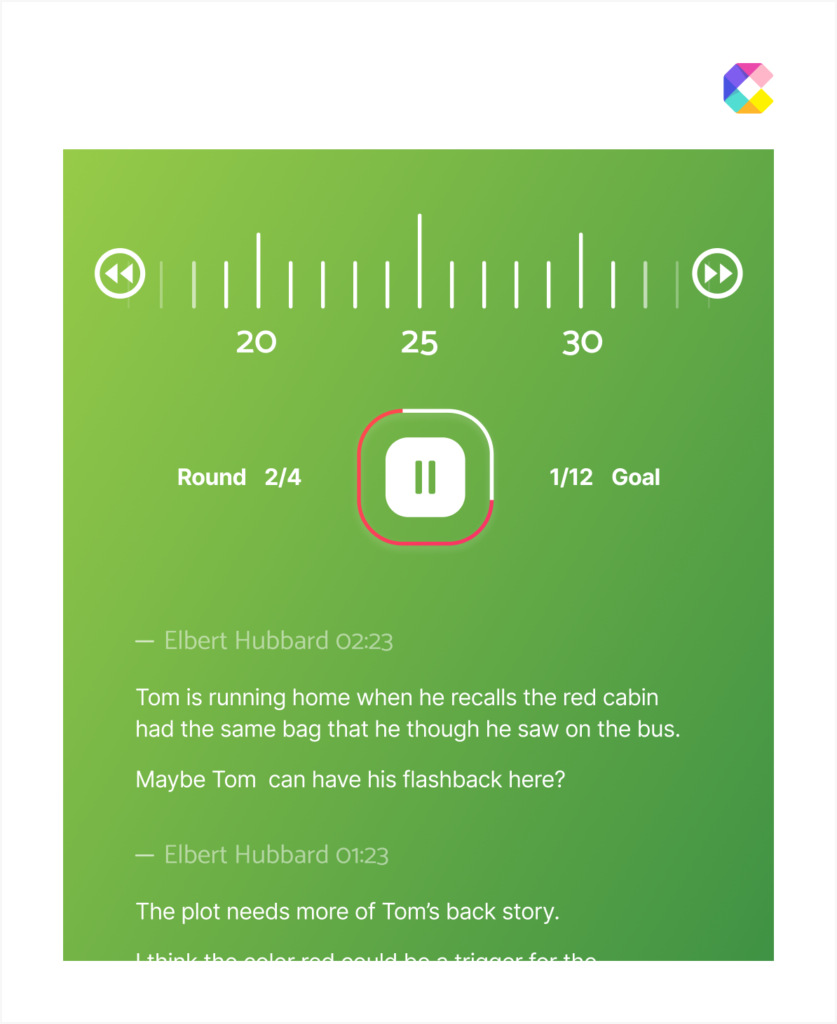All these questions and more are answered in this article.
If you’ve ever wondered how to brand yourself as an author, whether or not you should bother, or if there’s any gain to being branded, then this is a must-read topic for you. All authors from all walks of their careers should be familiar with author branding and how it can make all the difference between poor, mediocre, and exceptional sales.
Maybe you have questions, maybe you’re not sure what to ask, but that’s where this article comes in! By covering the questions you didn’t know you needed to ask, Charlii will help you level up your authoring skills and business plan.
Is branding just a logo?
Nope, branding is much farther reaching than many authors think, and Charlii plans to walk you through the many facets of this important subject so you can make an informed business decision for your author career. What are you waiting for? It’s time to build your brand from the ground up… after you learn if and why branding is important.
What is branding in writing?
I’ll answer a question with a question. What kinds of books does Nora Roberts write? Or Stephenie Meyer? Or Louis L’Amour? Or Stephen King? If you know any of these authors, I bet you can tell me exactly what kinds of books these authors write.
Why?
Well, mostly because of branding. Now, don’t confuse branding with only writing one genre. Louis L’Amour is a perfect example of someone who wrote primarily one genre (short westerns), but he did also write historical fiction, science fiction, and non-fiction. Still, many people know him as a western writer. But beyond that, he has a specific writing style that carries across his works and a skill and talent that is recognizable across genres.
If you add to that with his cover art style, which is recognizable at a glance, then you’ll start to see the bigger picture of author branding.
Why is branding important?
Well, if your readers know your work at a glance, then they are going to have an easier time picking up and reading every book you’ve published. When your fans find your books, making things easier on them by not only having your author name on books, but providing a uniform, dependable reading experience can make all the difference between a fan who loves this book, that one, and one more, but not all of them and a reader who loves all your books, except maybe that one (because not every book will resonate with every reader).
How can I make branding work for me?
Well, this one is a bit tougher. Beyond what I’ve already stated about uniform reading experiences, covers in a similar style, and funneling readers to other books you’ve written, branding isn’t really something that works for you as much as something that is another tool for your toolbox.
To add some depth to this idea, I want you to think of Stephen King. If thinking about him brings up a sense of foreboding, eerie sensations, and the thought of his gripping suspense-filled, thriller-style horror novels, then this is a prime example of how author branding works.
Think about your favorite author. What feelings does this thought evoke?
When it comes to author branding, there’s more than just a logo, an author name, an author picture, or covers. An author’s brand encompasses many facets of their writing, style, voice, and genres as well.
So how do you brand yourself?
Well, you want to know your reader, what they want, and what they expect from your genre. Knowing who you’re selling to will help you better tailor-make your books into the books they want to read. This also means learning to connect with your audience based on their likes, dislikes, and their expectations, because, as we’ve covered before, reader expectations are paramount.
Stand out by adding your own creative take on the genre and tropes. Your angle can make all the difference, so don’t be afraid to stand out and write your own style and with your own perspectives. Readers will learn to identify your specific brand of writing and will seek you out for your one-of-a-kind flavor.
Consistency is key! Are you a rapid release author? A slow-and-steady-wins-the-race author? Somewhere in the middle? Great! So long as you’re consistent, readers will be happier. Consistency isn’t just about your book release schedule, either. It’s your style, your voice, your writing, the way you weave elements of a story together, and so much more. So keep all of that in mind!
Create your brand first. If you haven’t gotten started yet, then consider making your brand first. What kind of author are you? What author style best fits the genre you’re writing in? How do you want readers to perceive you? These questions will help you find your place and stick with your branding down the road. And if you’re an established author, rebranding is possible with some work, patience, and a plan!
Can I have more than one brand?
Yes, yes, yes! A perfect example of this is Nora Roberts, who also writes as J.D. Robb. Those two authors are the same person. But for people who don’t love her work as Nora Roberts, they might love her work as J.D. This is a great way for multi-genre authors to not only let readers know they write more than one genre, but for them to keep the pen names separate so the reader’s experience is uniform no matter what book they’re picking up.
If you do some digging, you’ll see how very carefully these two names are differentiated, yet tied together because there is some (not all) crossover, meaning some of her readers who love her Nora Roberts books also love her J.D. books. However, since some readers don’t, having a clear line between the two helps readers know exactly what kind of book they’re picking up depending on the author’s name (and branding) on the book they choose. So never fear, multi-genre writers! You don’t have to pick one and stick with it.
Branding can help cure that fear inside you that wonders if anyone will even read your book.
Look, I can’t promise you success. All I can do is offer you the tips and tools big name authors use to build their careers from nothing to empires. Certain steps can really help you reach your goals with writing, whether your specific goals are just to finish the book, to make some pocket money every month, or even to make this your full-time career.
By having an idea of what you’d like to accomplish, you can utilize the tools at your disposal to help give yourself a leg up. By knowing your brand, your style, your genre, your tropes, your audience and reader expectations, you really up your chances of success by leaps and bounds.
And that’s as close to a guarantee as you can get in this business.
Start with a plan. Something simple like:
I’m going to write (genre).
Look up the length of books in your genre.
Read books in your genre.
Analyze tropes in your genre.
Figure out how you can add your unique spin on the genre and tropes.
Create an author name, style, and brand that will resonate with your readers. (look at similar authors for inspiration, but don’t steal their ideas. Not that you would, just an obligatory warning, so my lawyers don’t give me the side eye. You know the look.)
Look at covers in your genre, and hire an appropriate cover designer.
Analyze the blurbs of bestselling books in your genre and write a killer blurb for your book, or hire a professional to do so.
Plan out your book or series with tropes, with multi-dimensional characters, and following all the other advice in these articles.
And, if you do all these steps, you’re already in a great place before ever putting an actual word of your story on paper.
These steps are like the framework of your business and marketing plan and this information will serve you well throughout your whole author career. Because writing a book might arguably be the smallest part of being an author, if you really think about the big picture.
You can build on all these plans, add depth and clarity, and flesh all of it out, but this is a wonderful place to start.
I have a plan. I’m following the steps. Is it really worth all this work?
I can’t answer this question for you.
Again, all I can do is guide you.
I think it’s worth the work, and I imagine many authors would say something similar. Writing, like any other job, isn’t always easy, but it’s rewarding. The tangible feel of your book in your hands, that thrilling feeling when someone reads your book, that excitement when reviews start rolling in… there’s nothing quite like making people feel something for characters you created in a story you’re telling.
I’m not at all saying that this is an easy path—anyone trying to tell you that is lying or trying to trick you.
Being an author isn’t easy. It’s a lot of hard work, more than most people realize. But it’s possible, doable, and with some planning and effort, you can make this into whatever you need or want it to be.
Most people think they have what it takes to be an author. Few actually do. Fewer still actually put in all the work to make it a successful endeavor. So be one of the very few! Learn everything you can, follow all the advice in these articles, and find your way through this exciting, difficult, and thrilling world. With some navigational tools, you’ll get where you’re going. And if you’re really lucky, you’ll enjoy the ride, too.
Happy writing!
The brainstorming tool can help record and generate unique story ideas.







